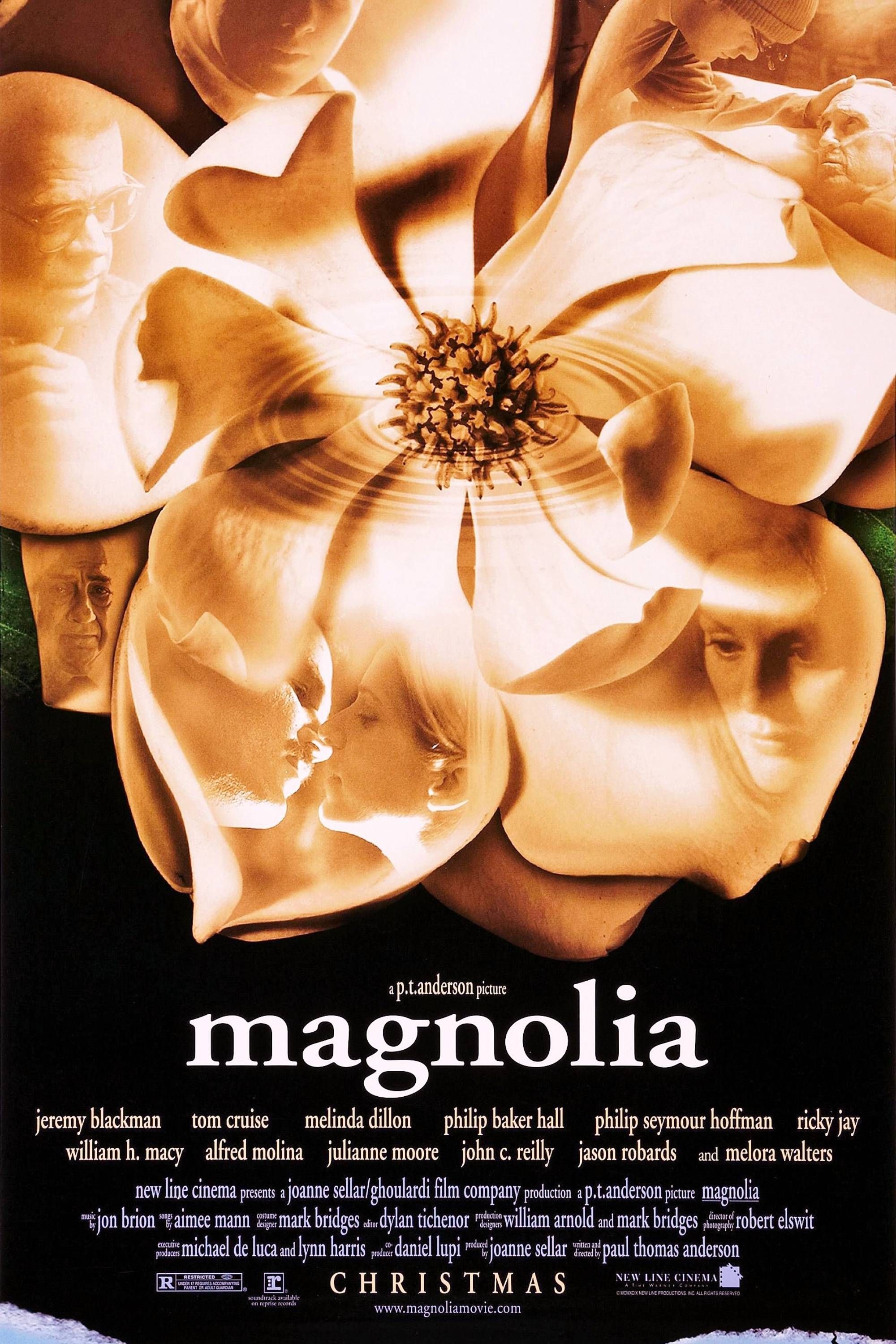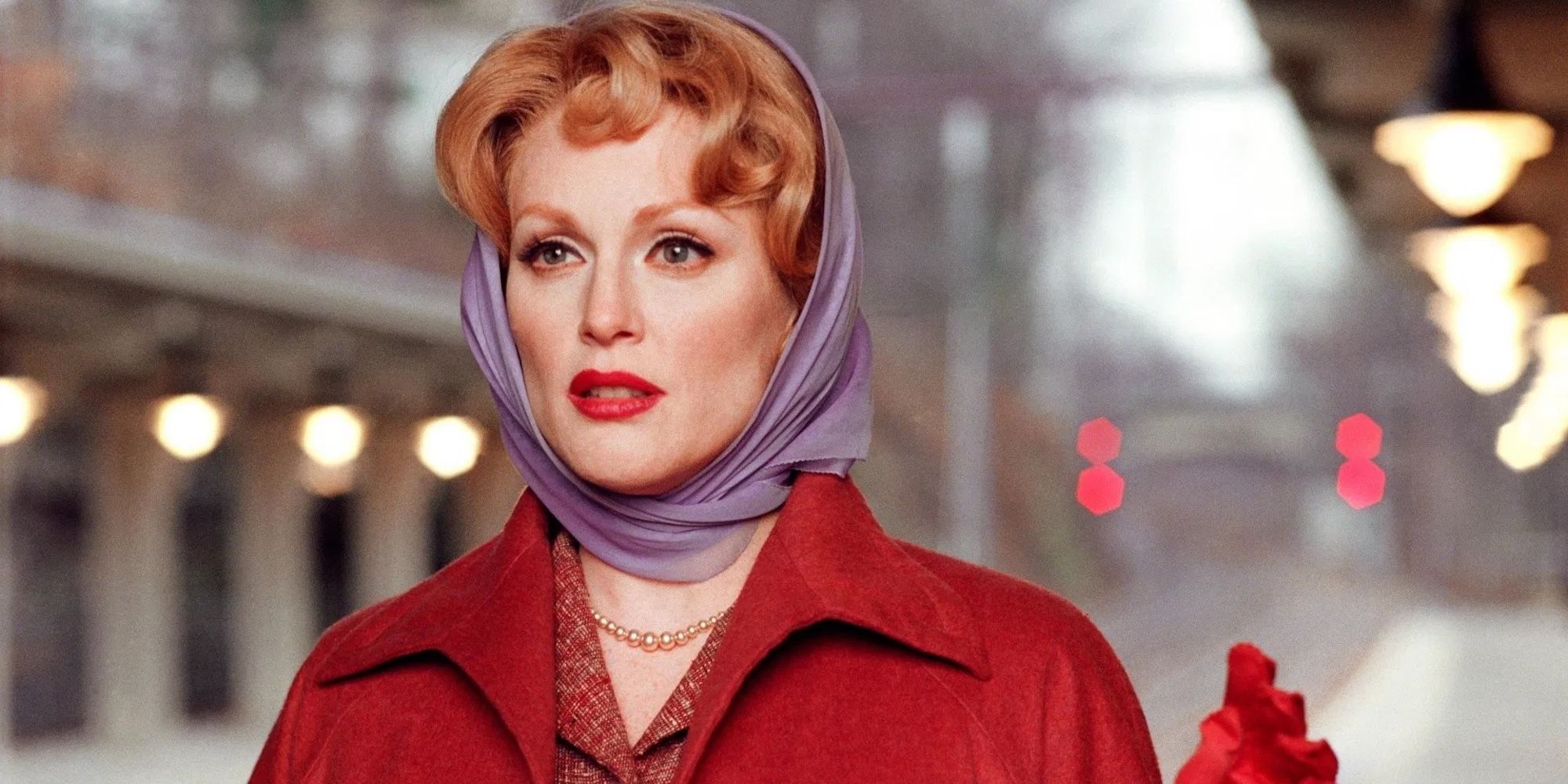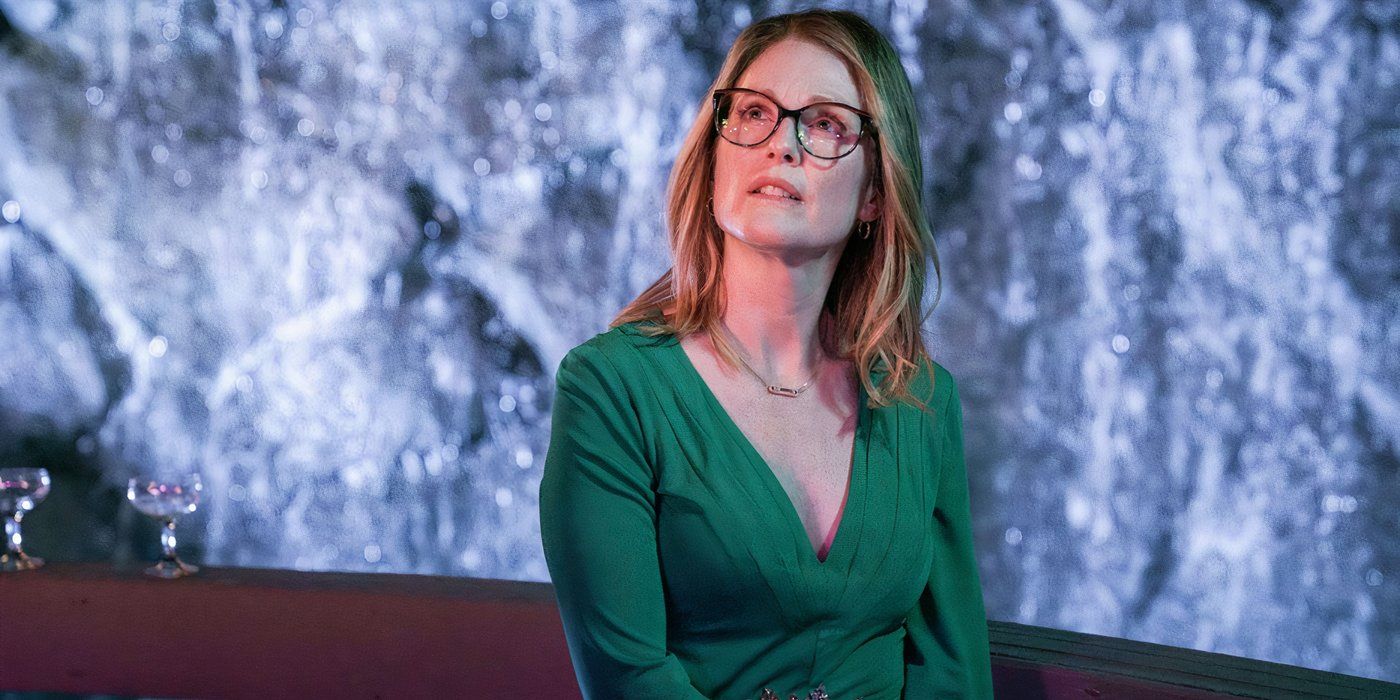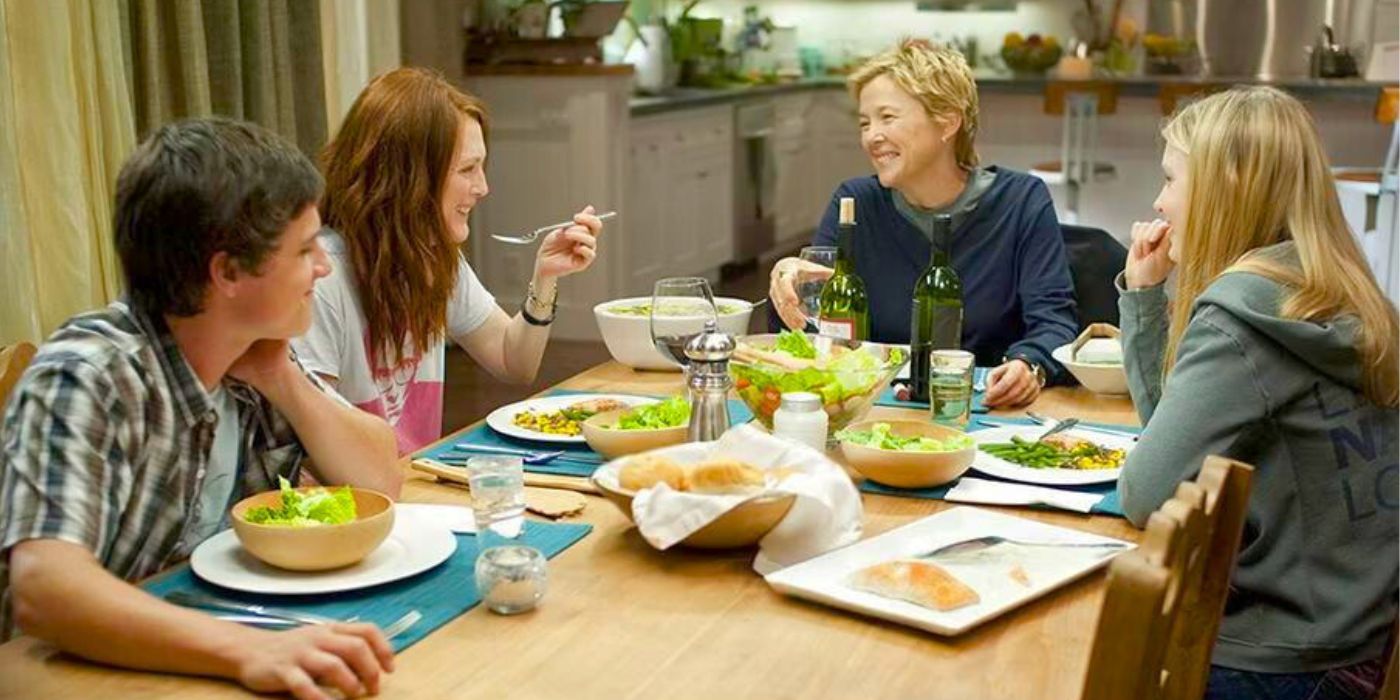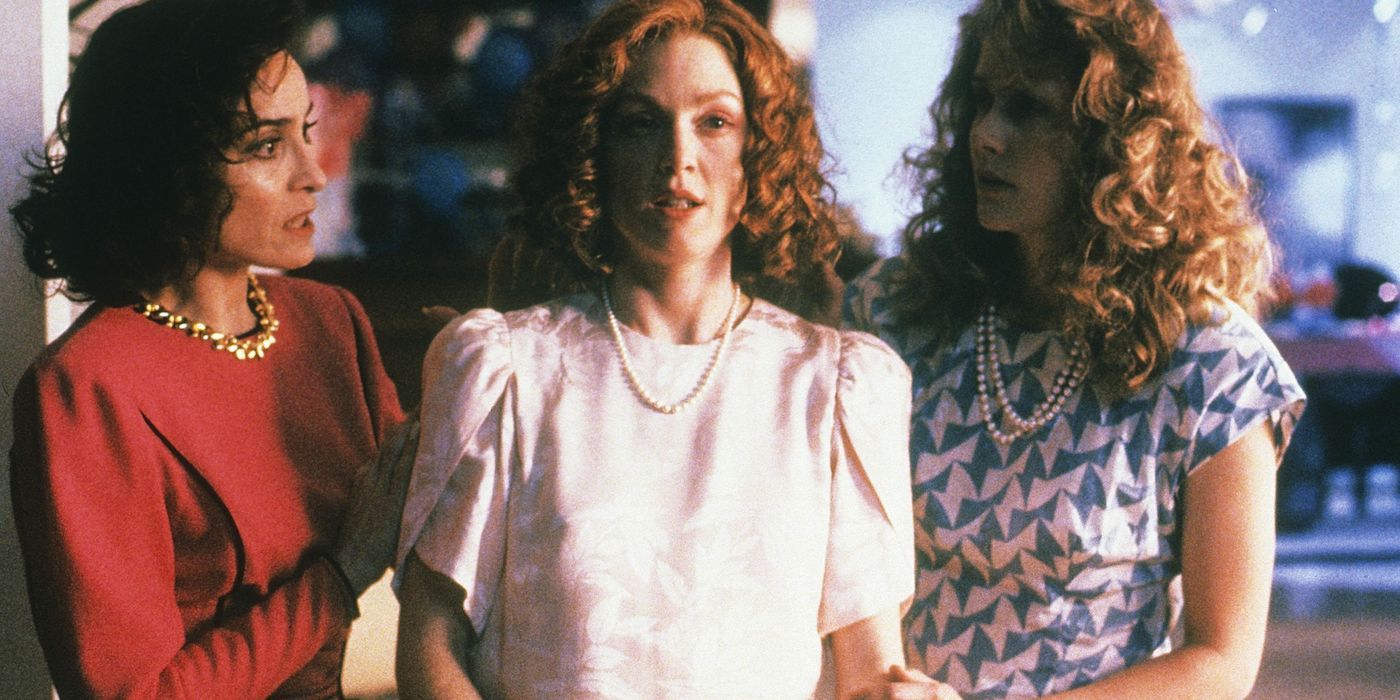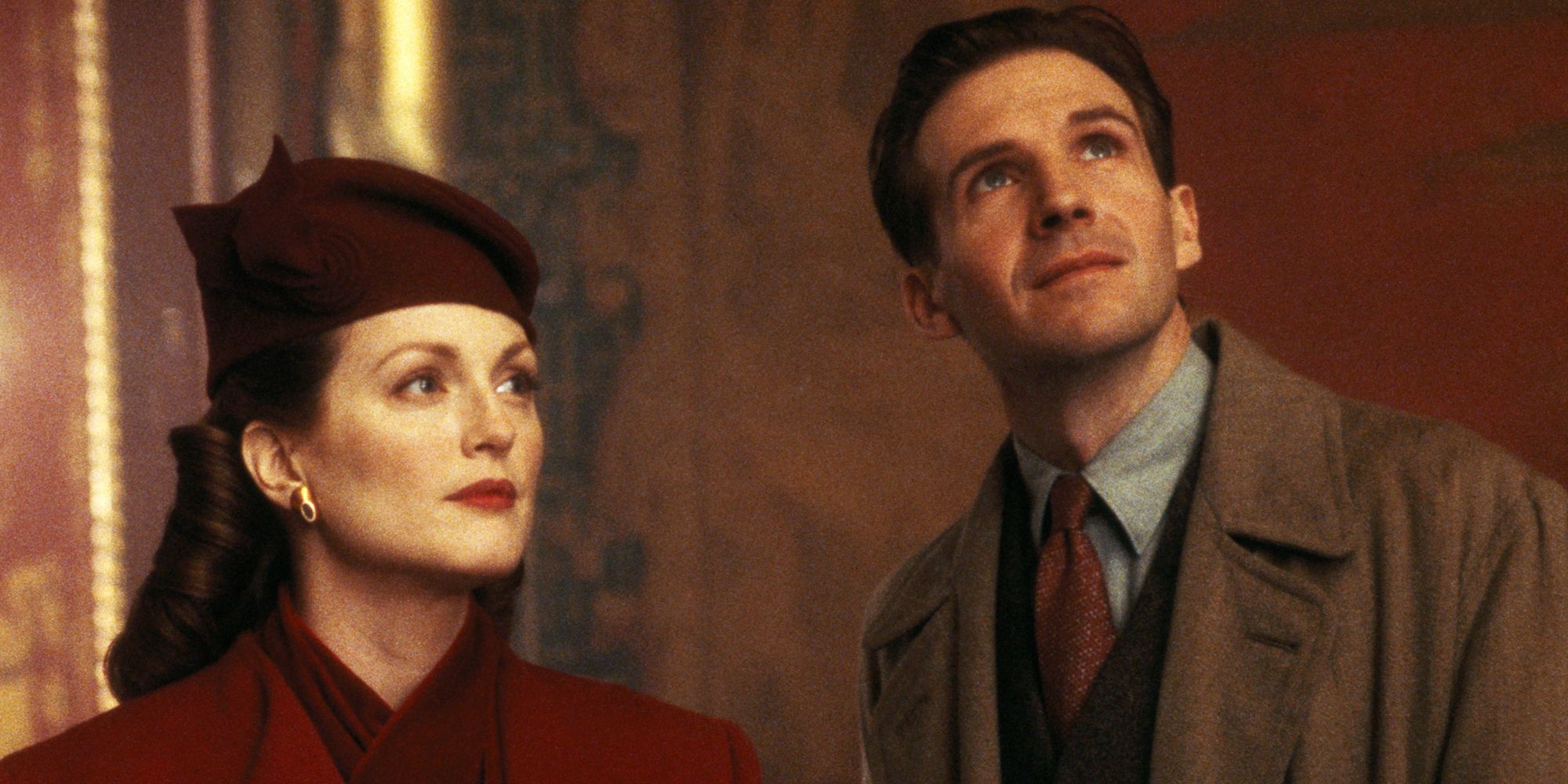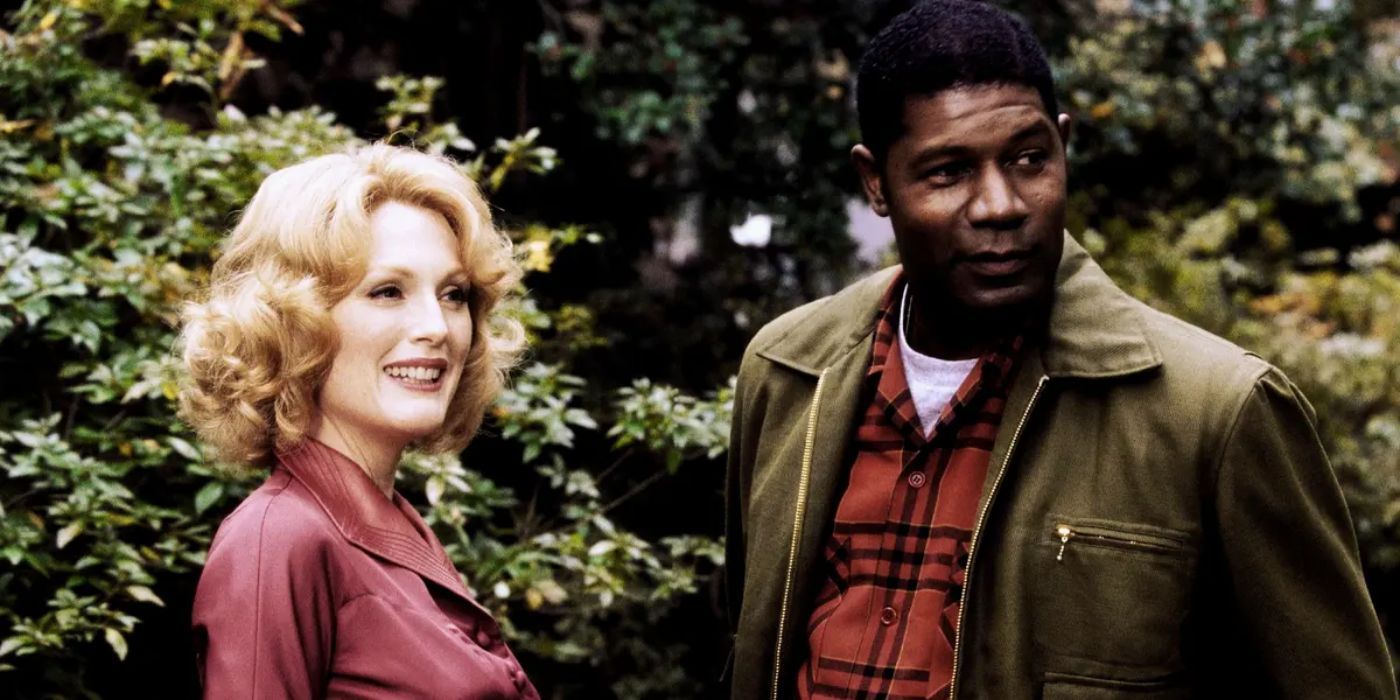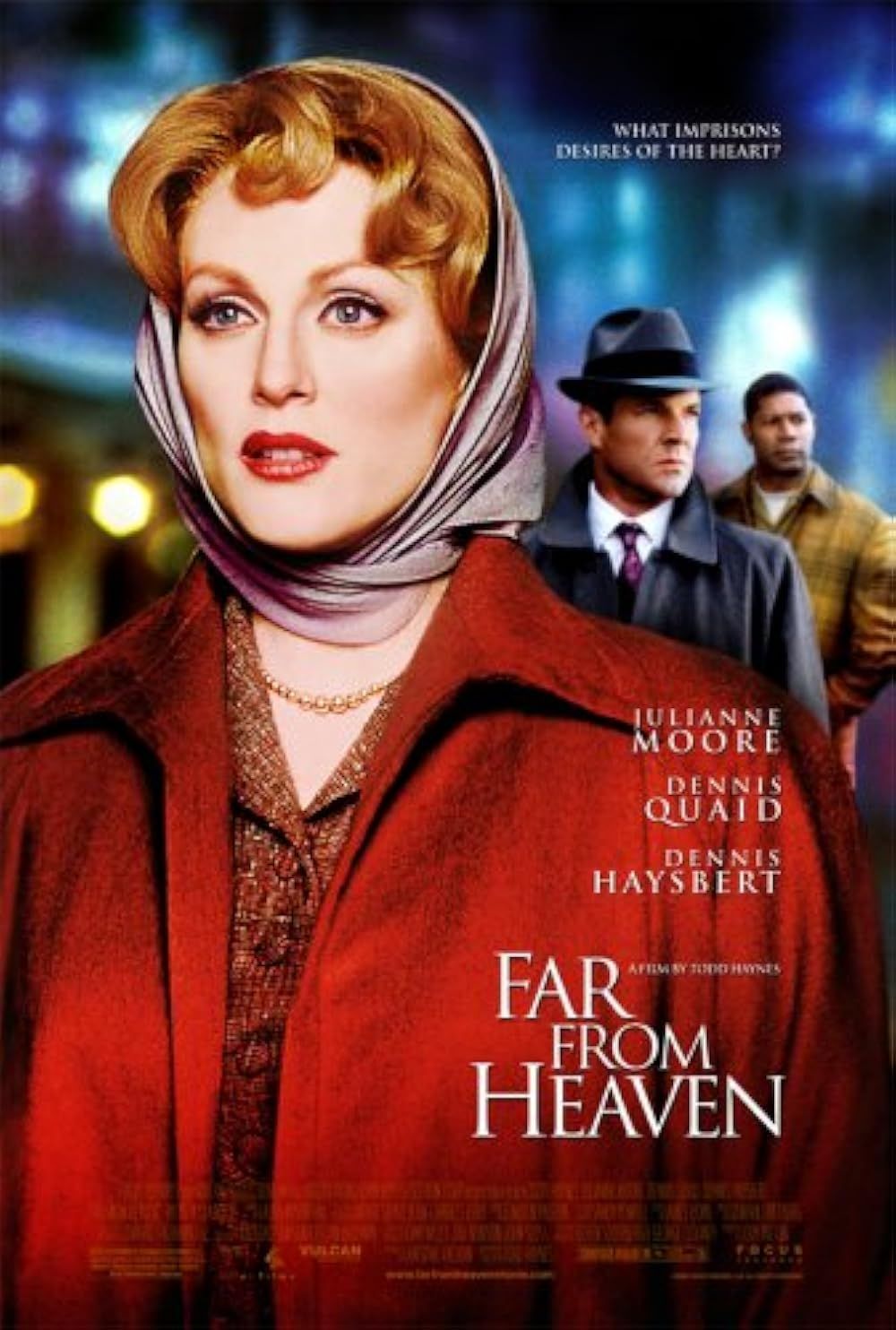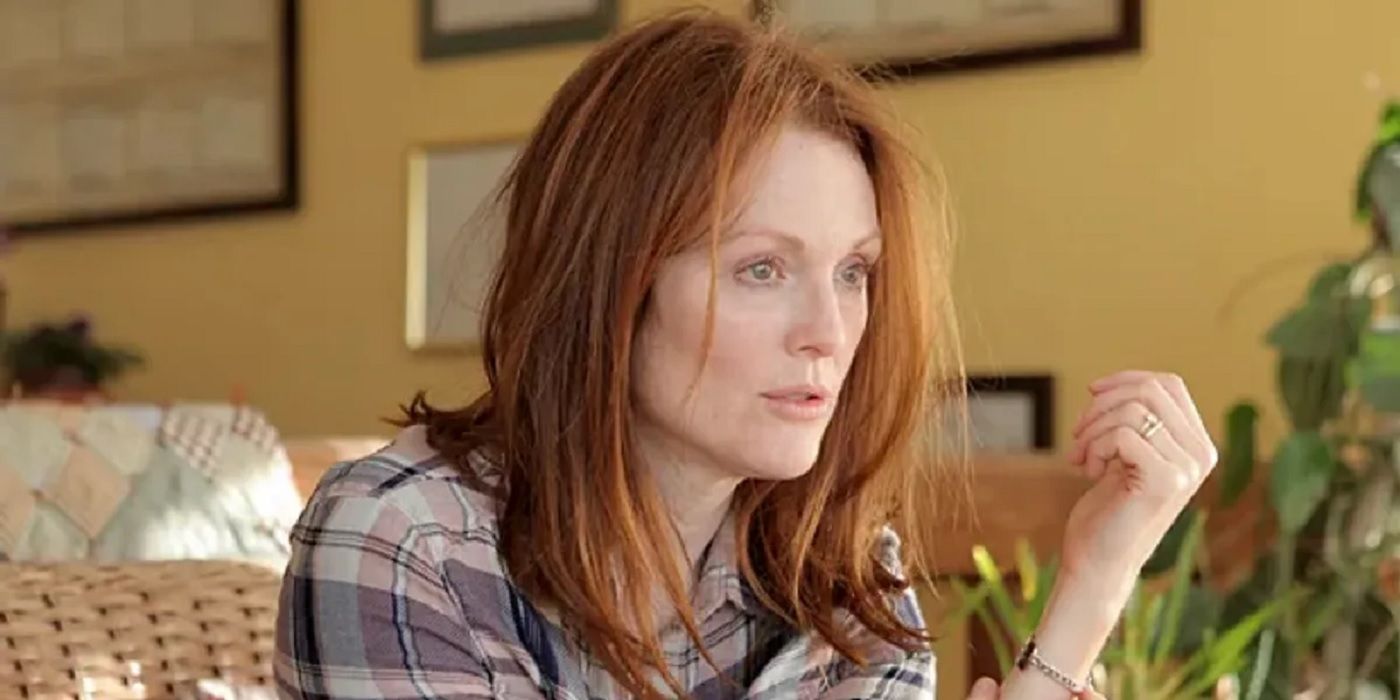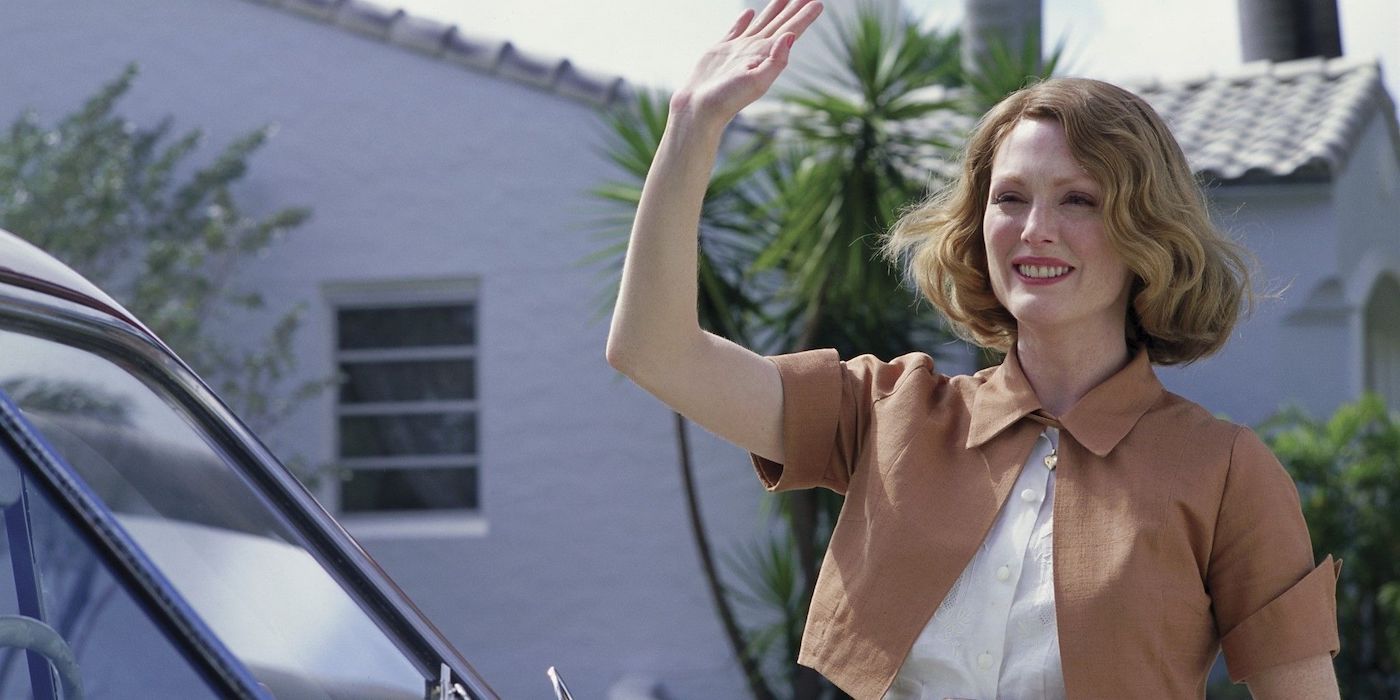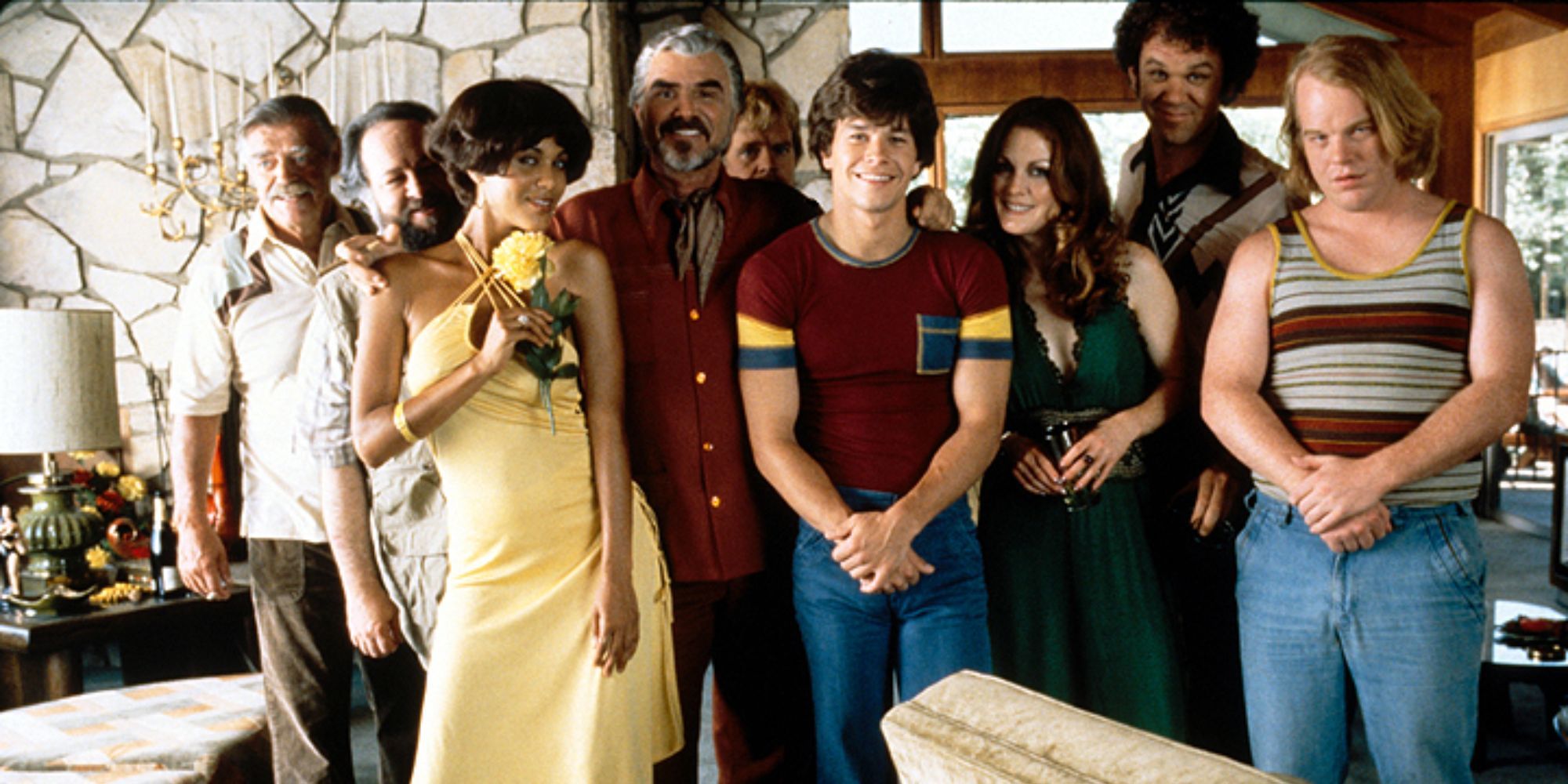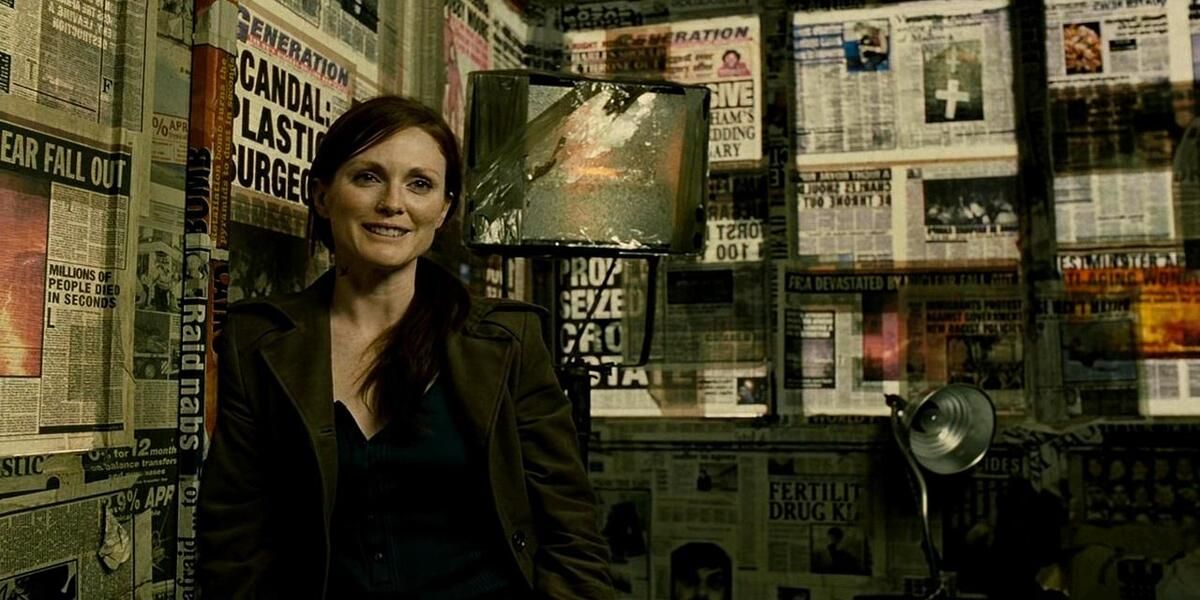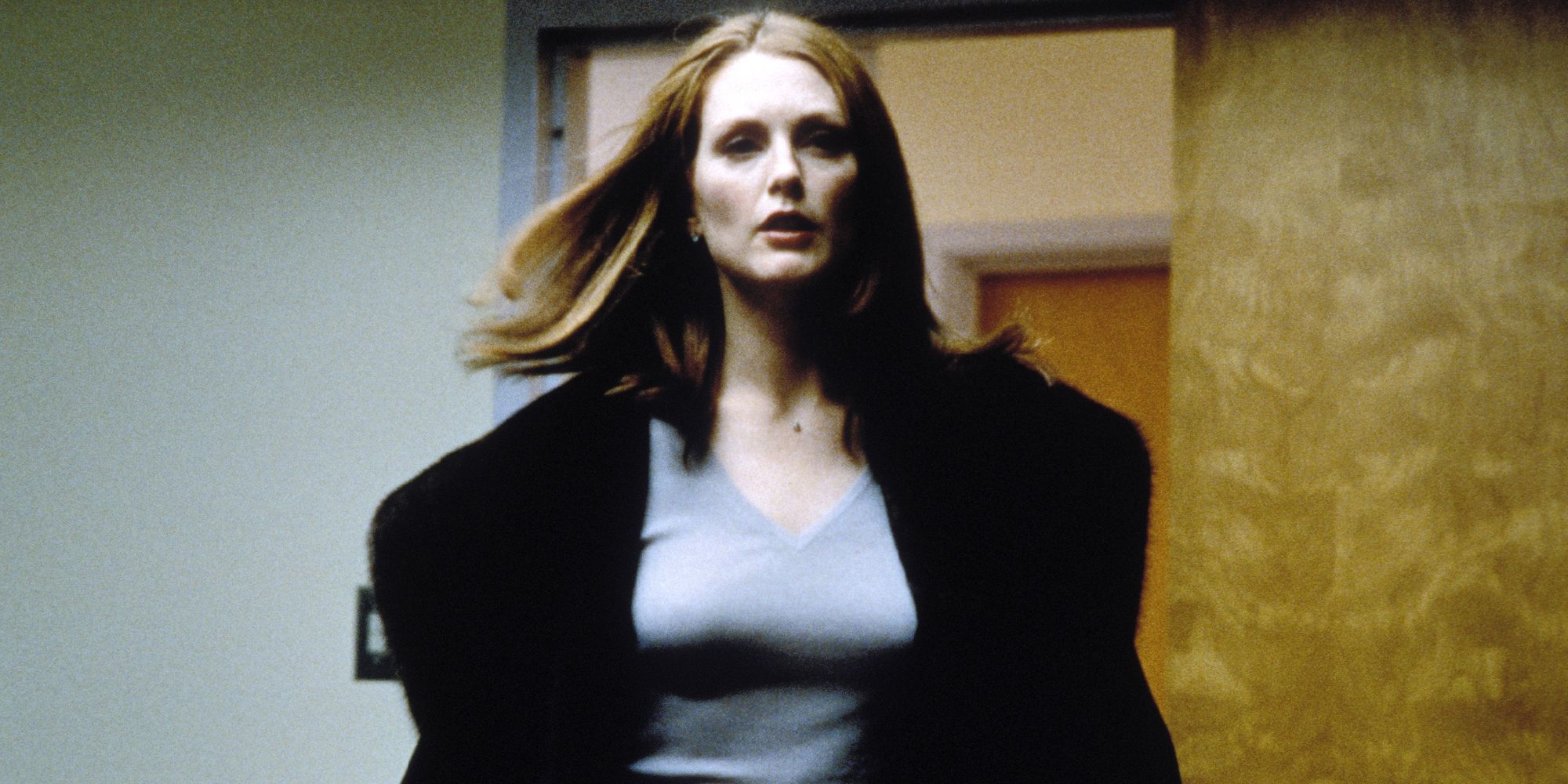Julianne Moore is one of the most versatile actors of her generation. She can be radiant or ragged, composed or chaotic, devastating in silence or explosive in meltdown. Since breaking out in the early ’90s, she’s built a body of work that refuses easy categorization, shifting between indie darlings, high-concept thrillers, period dramas, and character studies.
What unites her roles isn’t genre, but vulnerability. Whether she’s unraveling in a pharmacy, dancing alone to soft rock, or whispering confessions no one’s ready to hear, Moore is always emotionally transparent. The following ten movies show off her talents the most.
10
‘Gloria Bell’ (2018)
Directed by Sebastián Lelio
“I’m just a woman, you know. You’re a man. We live, we die. We carry on.” Moore is in top form in Gloria Bell, a portrait of middle-aged loneliness that never panders or pleads. A remake of director Sebastián Lelio‘s own Chilean film Gloria, it tracks the small highs and quiet humiliations of a divorcée navigating dating, family, and selfhood in Los Angeles. Moore plays the part with warmth and wariness.
Even when the film stays gentle, her performance is fearless. She sings along to soft rock classics in her car, parties with strangers, weeps in the bathroom, and picks herself up again. Moore takes a role that could’ve felt slight and turns it into something resilient and real. Some people questioned whether a remake was really necessary, but it did at least give Moore the chance to put her own stamp on the character. She doesn’t command the screen; she inhabits it.
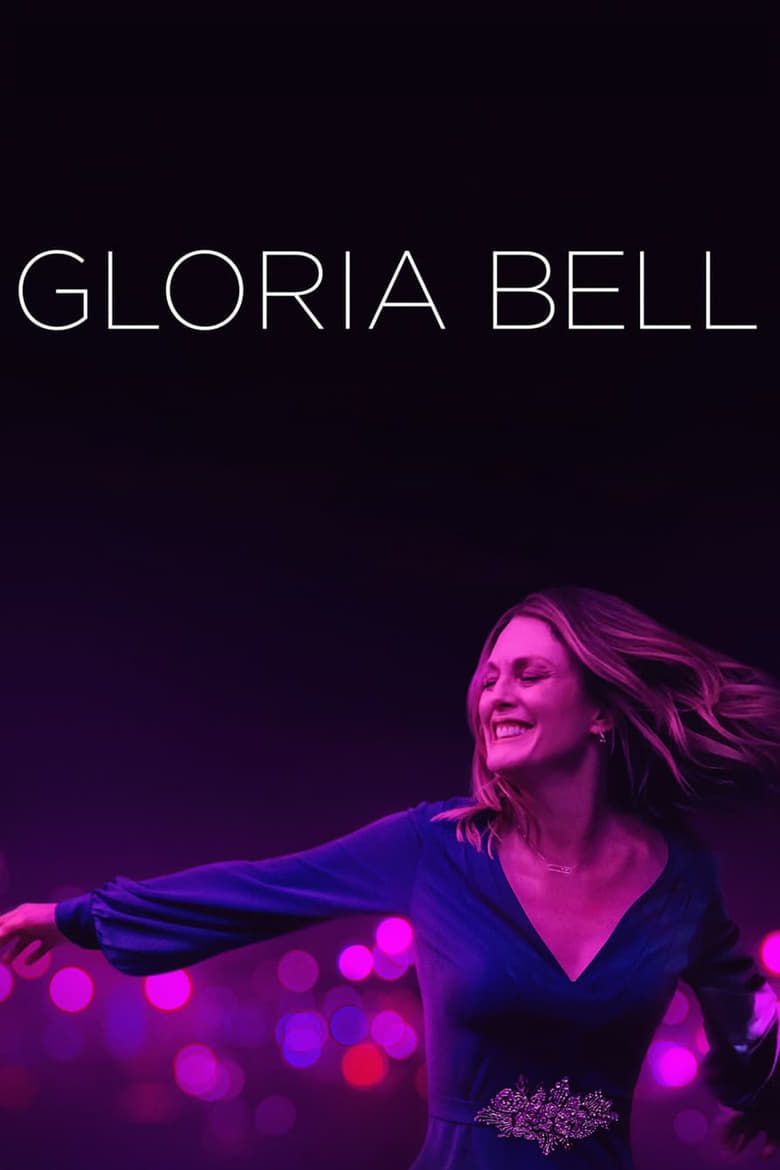
9
‘The Kids Are All Right’ (2010)
Directed by Lisa Cholodenko
“If I hear one more person say that marriage is hard, I’m gonna puke.” In this warm, bittersweet family drama, Moore plays Jules, a woman raising two teens with her wife (Annette Bening). When their children (played by Mia Wasikowska and Josh Hutcherson) seek out their sperm donor father (Mark Ruffalo), the household dynamics unravel in painful, hilarious, and utterly human ways. Moore’s Jules is flawed, impulsive, emotionally open, and deeply unsure of herself, a woman who wants to be seen, loved, and respected but often undermines her own desires.
The star gives the character a messy grace, walking the line between vulnerability and selfishness with startling honesty. The film never reduces her to “the cheater” or “the mother”. She’s always more complicated than that. Lisa Cholodenko‘s direction and the razor-sharp, Oscar-nominated script create space for Moore’s subtlety, making this one of her most emotionally authentic performances.
8
‘Safe’ (1995)
Directed by Todd Haynes
“I don’t know what’s wrong with me.” Safe is a psychological horror movie without monsters, only dread, sickness, and suffocation. Moore is Carol White, a suburban housewife who begins to experience mysterious allergic reactions to the modern world: chemicals, smells, noise. What starts as a medical mystery turns into an existential nightmare. Is she actually ill, or is the world just killing her softly? Moore’s performance is eerie and devastating, a study in repression, confusion, and hollow panic.
She barely raises her voice, barely asserts herself, barely exists, until her body starts screaming for her. Todd Haynes films it all with sterile precision, and Moore, in one of her earliest leading roles, makes helplessness feel horrifying. She doesn’t break down in dramatic fashion. She erodes. Together, they crafted one of Haynes’ strongest projects, a quietly radical film about the invisible poisons of modern life. The pair would go on to collaborate again several times.
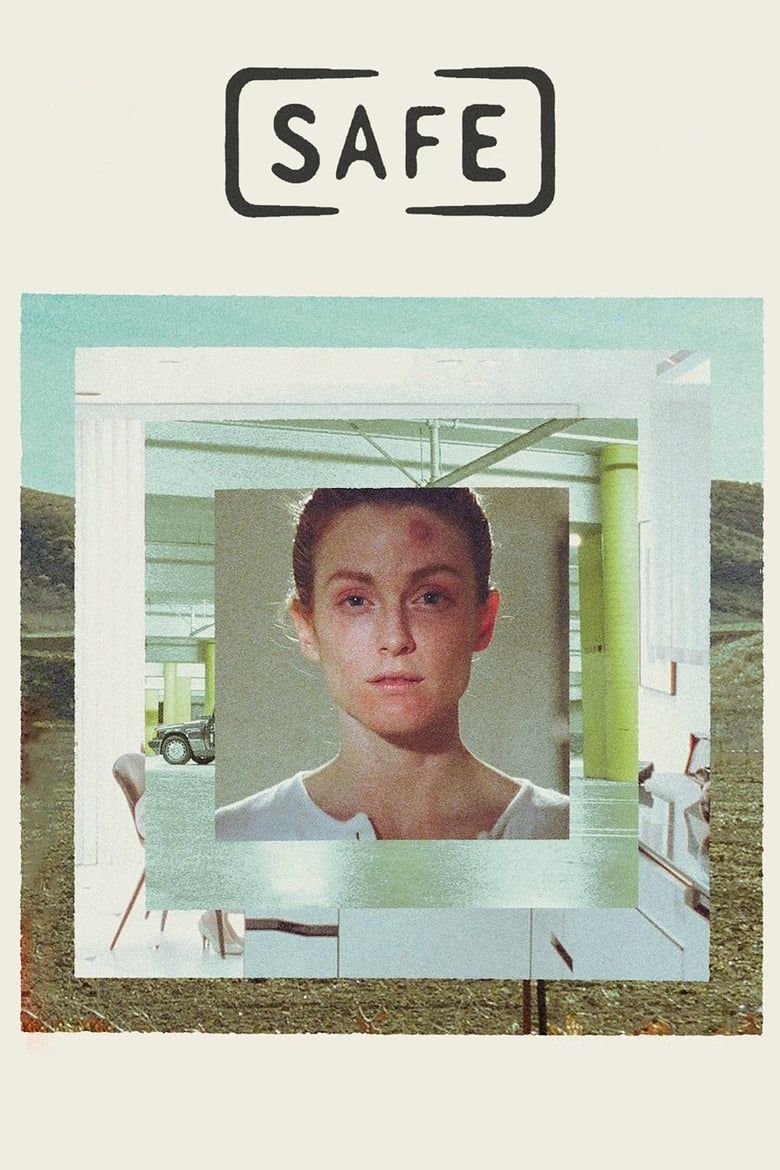
- Release Date
-
June 23, 1995
- Runtime
-
119 minutes
- Producers
-
Christine Vachon, James Schamus, John N. Hart, Lauren Zalaznick, Lindsay Law
7
‘The End of the Affair’ (1999)
Directed by Neil Jordan
“I think God has it in for us.” Moore earned a well-deserved Oscar nomination for her role in The End of the Affair, a sensual, mournful adaptation of the Graham Greene novel. She plays Sarah Miles, trapped in a love triangle with her husband (Stephen Rea) and a brooding writer (Ralph Fiennes) during and after World War II. But this isn’t just a tale of forbidden romance. It becomes a kind of spiritual tragedy, a story about jealousy, loss, and the mysterious weight of grace.
Here, Moore moves between passion and guilt with quiet control. Her eyes are haunted, like she’s already mourning something still alive. She’s torn between love and obligation, defiance and surrender, and we see all that playing out in the smallest of expressions and gestures. This is complemented by the aesthetics. Neil Jordan‘s direction is lush and shadowy, with flashbacks, voiceovers, and rain-soaked moments of longing.
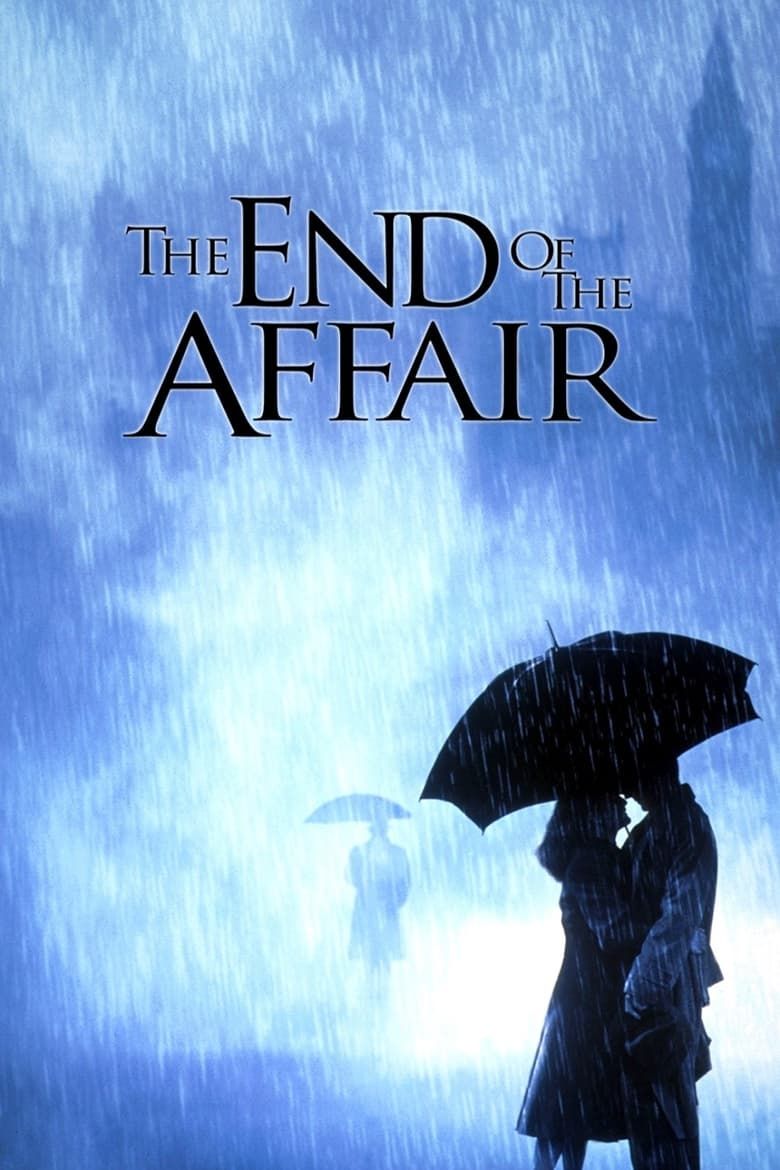
The End of the Affair
- Release Date
-
December 3, 1999
- Runtime
-
102 minutes
- Writers
-
Neil Jordan
- Producers
-
Stephen Woolley
6
‘Far from Heaven’ (2002)
Directed by Todd Haynes
“I never knew what it was like to be looked at.” In Far from Heaven, Haynes reimagines a 1950s melodrama with modern eyes, and Moore gives perhaps her strongest performance. She plays Cathy Whitaker, a housewife whose world begins to unravel when she discovers her husband’s (Dennis Quaid) closeted sexuality and forms a forbidden friendship with her Black gardener (Dennis Haysbert). The film mimics the visual and emotional language of 1950s director Douglas Sirk, with saturated colors, elegant framing, and repressed feelings burning beneath the surface.
Moore’s performance is precise yet overflowing, every smile strained, every pause filled with unspeakable pain. Haynes and Moore make the past feel painfully present, exposing the social rot beneath the pastel perfection of mid-century America. The film is clever both thematically and narratively, not just homage but reinvention. It borrows the style of ’50s cinema while revealing the truth about life in that decade.
5
‘Still Alice’ (2014)
Directed by Richard Glatzer and Wash Westmoreland
“I am not suffering. I am struggling.” Moore won her long-overdue Oscar for Still Alice, a quiet and devastating portrayal of a woman grappling with early-onset Alzheimer’s disease. She plays Dr. Alice Howland, a linguistics professor whose life begins to fragment in slow, terrifying increments. The tragedy of the film isn’t just what Alice forgets. It’s what she remembers she’s losing.
A lesser performer might have gone for melodrama, but Moore isn’t overwrought or sentimental. Instead, she’s measured, intelligent, and emotionally exact. She captures the dignity of a brilliant mind fighting to stay present as the lights go out. It helps that the script refuses to indulge in clichés either. It gives us a woman who loves her family, who fears becoming a burden, and who clings to herself even as that self slips away. Moore finds the poetry in confusion, the heartbreak in silence, the courage in admitting fear.
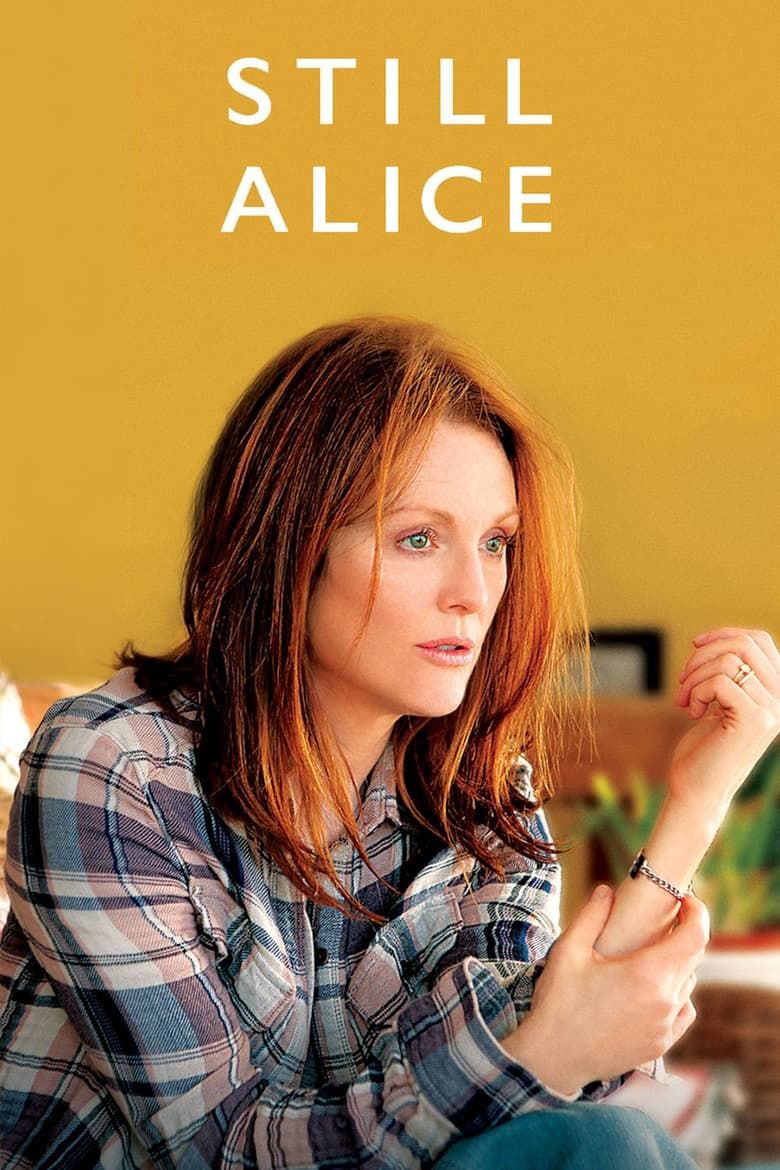
- Release Date
-
December 5, 2014
- Runtime
-
101 Minutes
- Director
-
Richard Glatzer, Wash Westmoreland
- Writers
-
Wash Westmoreland
4
‘The Hours’ (2002)
Directed by Stephen Daldry
“It would be wonderful to say you regretted it. It would be easy. But what does it mean?” In The Hours, Moore taps into a similar feeling to Far from Heaven. In this one, she plays a 1950s housewife named Laura Brown who is suffocating under the weight of domestic perfection. Trapped in a pastel prison of expectations, Laura reads Mrs. Dalloway and begins to contemplate escape—not from a marriage, but from her own life. Moore plays her like a ghost inside a beautiful frame, barely touching the surfaces of her world.
The movie intertwines Laura’s story with those of Nicole Kidman‘s Virginia Woolf and Meryl Streep‘s modern-day Clarissa, forming a triptych of longing and loss. Kidman and Streep are predictably great as well. Moore’s segment is perhaps the quietest, but it lingers longest. Her choices ripple across generations, and her smile, tight, terrified, fleeting, says more than pages of dialogue ever could.
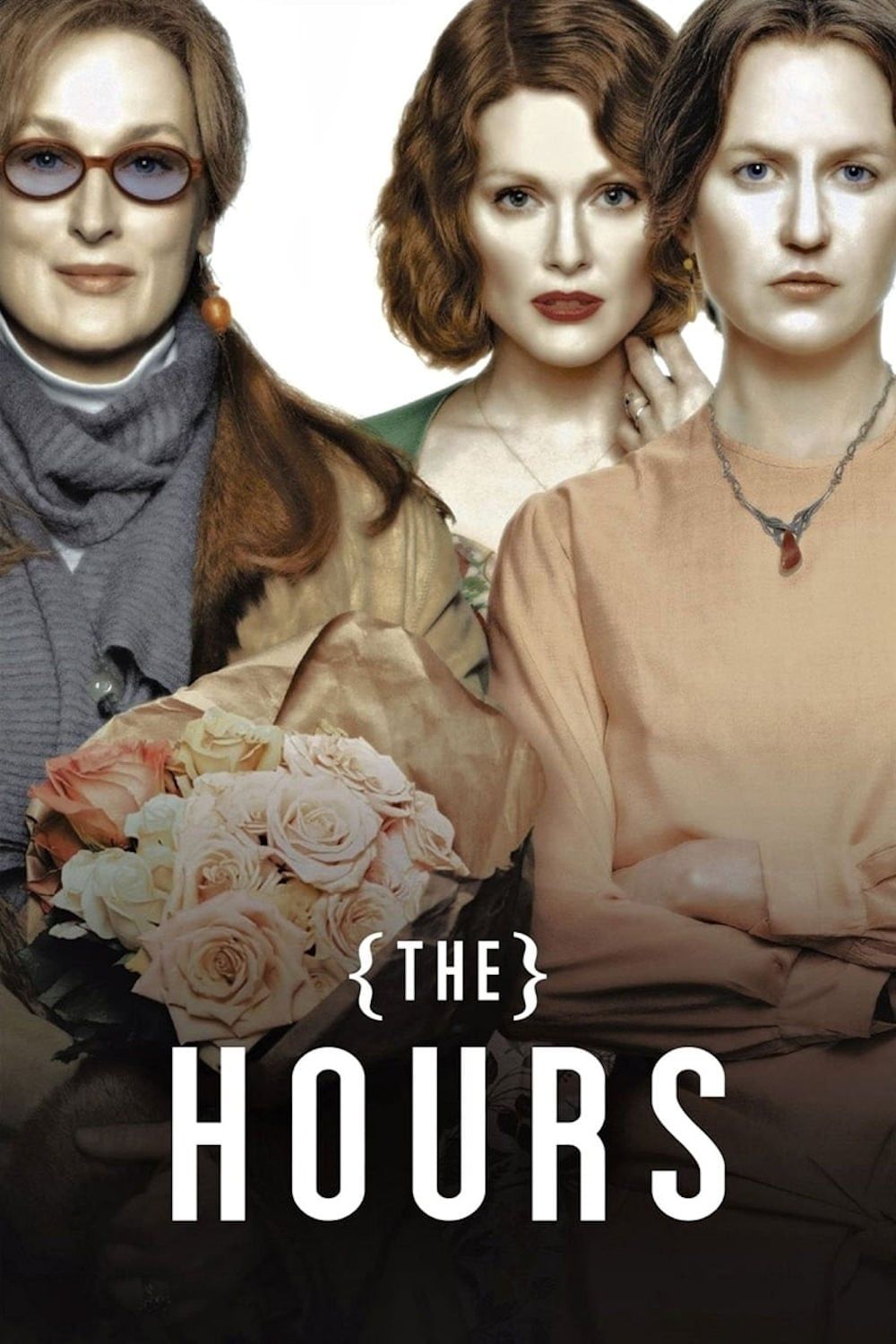
3
‘Boogie Nights’ (1997)
Directed by Paul Thomas Anderson
“It’s okay, honey. You’re a star.” In the sweeping ensemble of Boogie Nights, Moore is Amber Waves, a porn actress and surrogate mother to a ragtag group of adult film misfits. She’s glamorous, maternal, fragile, and broken, all at once. Moore plays her as a woman who desperately wants to nurture others because she no longer knows how to care for herself. She sees the family these people are trying to build and the tragedies they can’t outrun.
The star brings warmth and sadness to every scene, turning what could’ve been satire into a character study. Her relationship with Mark Wahlberg‘s Dirk Diggler feels both absurd and emotionally real, and her courtroom scene, pleading for custody of her son, is quietly shattering. Paul Thomas Anderson fills the music with spectacle, music, and wild energy, but Moore is one of its more restrained, bruised elements. The movie as a whole remains fantastic, one of the very best of the 1990s.
2
‘Children of Men’ (2006)
Directed by Alfonso Cuarón
“You’re the only one who could’ve brought the Kee girl.” In Children of Men, Alfonso Cuarón‘s masterpiece where humanity faces extinction due to mass infertility, Moore plays Julian, an activist and rebel leader who still believes in hope. Her role is brief but unforgettable. She enters the film like a spark in the dark: urgent, principled, and just a little dangerous. Her chemistry with Clive Owen‘s Theo hints at a shared past that gives the story more emotional weight.
Julian’s early exit from the film is shocking, but her presence lingers, like a ghost of conviction haunting the morally grey world she leaves behind. Here, Moore makes every second count, giving Julian impressive depth despite the limited screen time. She’s not there to save the world. She’s there to light the fuse. In a movie about the last flickers of human decency, Moore shines as one of its last true believers.
1
‘Magnolia’ (1999)
Directed by Paul Thomas Anderson
“I have so much love to give. I just don’t know where to put it.” Moore and Paul Thomas Anderson teamed up again for Magnolia, a less entertaining but more ambitious ensemble drama. Moore’s work here is raw, volatile, and unforgettable. She is Linda Partridge, a trophy wife wracked with guilt over her dying husband and her own past infidelities. The character unravels onscreen in ways both shocking and deeply human. Her scenes are storms of emotion: grief, rage, despair, and shame colliding in real time. There’s no vanity in the performance, only nerve and nakedness.
This epic is filled with characters on the edge, and Moore perhaps feels closest to the flame. Her monologue at the pharmacy is a masterclass in implosion, and her final scenes are so emotionally exposed they’re almost hard to watch. Ultimately, Magnolia is about the cosmic pain of being alive, and Moore makes sure we feel every second of Linda’s private apocalypse.
